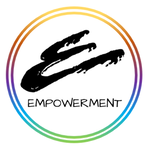|
I was the “black friend” that a lot of racists claim to have.
I didn’t come to terms with the experiences that formed my racial identity until my young adult life. My encounters with racial injustice were not as violent or as fatal as many of the police interactions I hear about nowadays. Most of what was said or done to me was in the form of racially-insensitive comments about how my perceived mannerisms did not reflect the race with which I identified. I was born to well-educated black parents, and while we weren’t super loaded or anything, we led a comfortable life. As a child, I remember walking through the front door and telling my mom how my day at school went. I carelessly put my backpack near the front door, and when my mom objected, I responded with “my bad”, a phrase commonly uttered by my black friends at school. She gently discouraged me from ever saying this again, and when I asked why, she said that it made me sound uneducated. From that day on, I spoke “proper English”, the type of English that is commonly associated with “talking white”. When I was in 7th grade, I had heard from one of my white friends that one of our black classmates had gotten assaulted by some other black students for “not acting black enough”. Her name was Melissa*, and although I did not know her too well, I had heard that she was popular amongst other students. At that moment, I felt a tightening in my chest, and I worried that something like this would happen to me someday. Almost as if reading my thoughts, my friend told me “You don’t have to worry about that, Devin. You’re not like the other black kids.” I don’t remember how I felt after I heard that, but I know it wasn’t a good feeling. I didn’t know it at the time, but this incident was the first step towards me realizing that my success, safety and “acceptance” in this world ultimately depended on the approval of white people, and that any attempts to connect with my heritage would be met with disapproval. I often think about this day, but probably not nearly as much as Melissa does. I spent my high school years at a predominately white private school in Louisiana, and it was an experience to say the least. Here are a couple of those racial encounters that I had mentioned earlier: • A white friend of mine said the n-word when talking to me about another person that she was displeased with, and when I expressed displeasure, she scoffed and said it “wasn’t a big deal”. • I dated a white guy, and he would constantly make anti-black “jokes” at my expense, and like an idiot, I would chuckle awkwardly in response. • While dating said white guy, someone wrote “n-word lover” on his locker in permanent marker. Wrote the full word with a hard “r” and everything. • During my senior year, I was voted “Whitest Black Person You Will Ever Know”. It was a weird space to be in, but if I had to describe it, it’s like a child receiving conditional love from their parents. As long as I did not “have an attitude” (i.e. display ANY degree of negative, even neutral, emotion), I would get compliments from adults saying how well-behaved I was. I felt so powerless until a few years ago at my job, when someone had said the n-word to me in casual conversation. I remember it feeling similar to what happened to me in high school, and the session ended with me politely but firmly telling the person to leave. The feeling of power and self-love that I had for myself in that moment was indescribable. I’m very lucky to work at a place that validates my experiences as a black woman in America. Until recently, I allowed people to say things to me that should have never been said. Sadly, bullies don’t go away after high school, so I’ve had to dig deep and learn a lot about myself over the past couple years, including how to love myself for all of my differences. Black people: Please, PLEASE do not allow other people to police your blackness. Using “degrees of whiteness” as the standard for acceptable behavior is a common tactic that racists use to divide and alienate people of color. More likely than not, you’ll have to step outside of your comfort zone to call out people who don’t think you’re black enough. However, you must understand that some of these people won’t like it, and may leave your life forever. This will be painful, but know that you’re not losing friends. You’re only losing manipulators, narcissists, and liars that used to benefit from your lack of boundaries. *names have been changed to protect the identities of people in this story - Devin Tempton, Staff at The Empowerment Program, Inc.
3 Comments
Monique LaCour
6/26/2020 08:56:52 pm
Thank you so much for sharing your experience, Devin! There will be others who will now have the courage to be their authentic selves, because of you. It takes courage, but you're proof that it can be done. This was POWERFUL!
Reply
Fatrice Borsen
6/29/2020 01:32:22 pm
Devin... This article took courage! Thank you for so eloquently giving voice to your experiences.. Unfortunately, many young women and men have walked a similar path.. Based on this article they will know they are not alone. Thank you for shining the light on this issue!!
Reply
William Jackson
7/1/2020 02:56:12 pm
Hello Devin,
Reply
Your comment will be posted after it is approved.
Leave a Reply. |
Archives
March 2021
Categories
All
|

 RSS Feed
RSS Feed